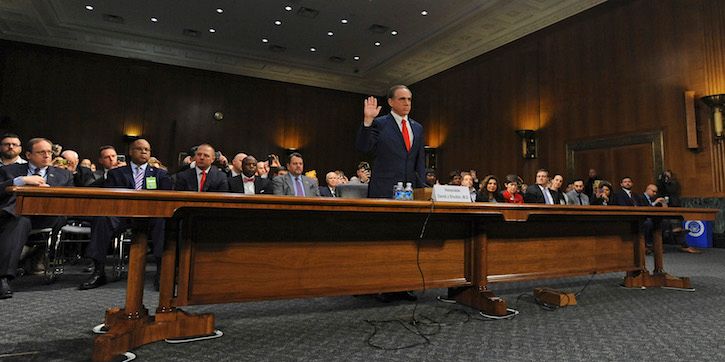Shulkin Fears Polarization, Privatization of VA Following Dismissal
The tone of the former VA Secretary's new op-ed casts a dramatic light on a speech he gave just 10 days ago in Philadelphia.

Less than 7 hours after the President had announced his replacement (and thus, his dismissal) on Twitter, the New York Times published an op-ed from now-former Department of Veterans’ Affairs (VA) Secretary David Shulkin, MD.
His firing had been expected for weeks or even months, and it likely did not take Shulkin by surprise. The resulting commentary is a rumination on the direction that VA may be headed in. The former Secretary fears a politicized culture in Washington that could lead to the privatization of VA’s health system.
“I believe differences in philosophy deserve robust debate, and solutions should be determined based on the merits of the arguments,” Shulkin writes. “The advocates within the administration for privatizing VA health services, however, reject this approach.”
Shulkin came to the job from the private sector. Before becoming Under Secretary for Health at the VA in 2015, he served as an executive for Morristown Medical Center and the Atlantic Health System Accountable Care Organization, and also held Chief Medical Officer title at a series of Pennsylvania health systems including the University of Pennsylvania Health System.
Based on that experience, he wrote that private healthcare is “ill-prepared to handle the number and complexity of patients…particularly when it involves the mental health needs of people scarred by the horrors of war.”
The content of the editorial puts his recent speeches in a different light. Just 10 days ago, he spoke at a meeting in Philadelphia, building his comments around precedents that the VA health system had set and ways that its metrics compared favorably to the private sector.
“When you look at population health measures, VA almost always outperforms the private sector,” he said at the Population Health Colloquium on March 19th, adding that the agency has been successful at treating veteran health holistically. That was one of the reasons, he said, that the VA was seeing improvements in veteran homelessness, unemployment, and opioid abuse rates.
He credited the consolidated, initiative-driven nature of the agency with driving hepatitis C rates down dramatically among veterans, and he said that even despite the widely-known staffing shortages that contribute to long wait times, follow-ups after referral actually happen more quickly in the VA health system than in private care.
In a following question and answer session, he deferred on a question about disagreements with the President, saying he that he was given an opportunity and he was going to try to make use of it. In the new commentary, however, he writes that “the environment in Washington has turned so toxic, chaotic, disrespectful and subversive that it became impossible,” vowing to “continue to speak out against those who seek to harm the VA by putting their personal agendas in front of the well-being of our veterans.”
A number of potential replacements for Shulkin bubbled up prior to yesterday: A few of them publically supported VA privatization. President Trump’s nominated replacement, White House physician Admiral Ronny L. Jackson, MD, was not on any of those lists. Jackson does not have a long public track record to indicate how he feels about the privatization issue. Veterans groups indicated that they were surprised by the selection, which some reports say was based on Jackson’s performance in a press conference detailing the President’s physical.
If confirmed, Jackson would inherit a shorthanded agency continually scrutinized for its disorder, tasked with coordinating care for over 9 million veterans and their unique health challenges.
Related Coverage:
Shulkin Out at VA, Trump Nominates White House Physician as Replacement
Shulkin: A Transparent VA Will Lead the Way for the Rest of Healthcare
Healthy Bottom Line: The Trouble With SDOH Programs and the Secret to Improving Them
September 28th 2021Several problems exist with current programs that address social determinants of health (SDOH); however, a new social model aims to combat these issues and improve the programs’ effectiveness.